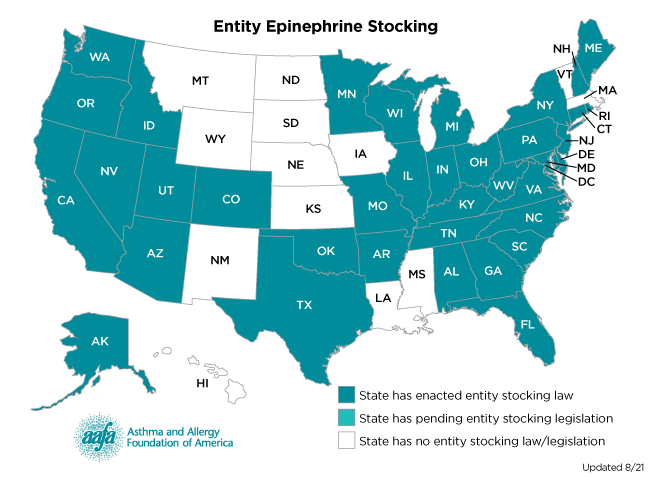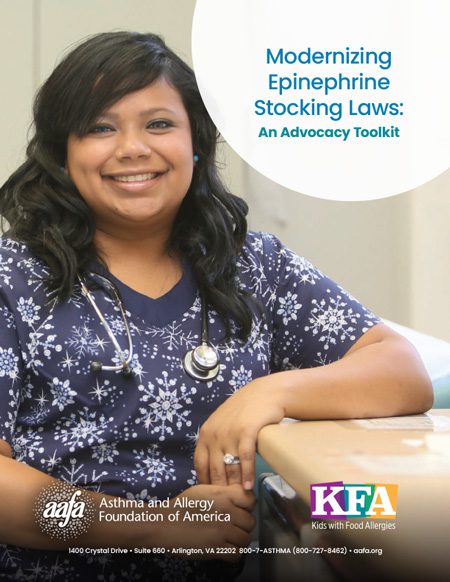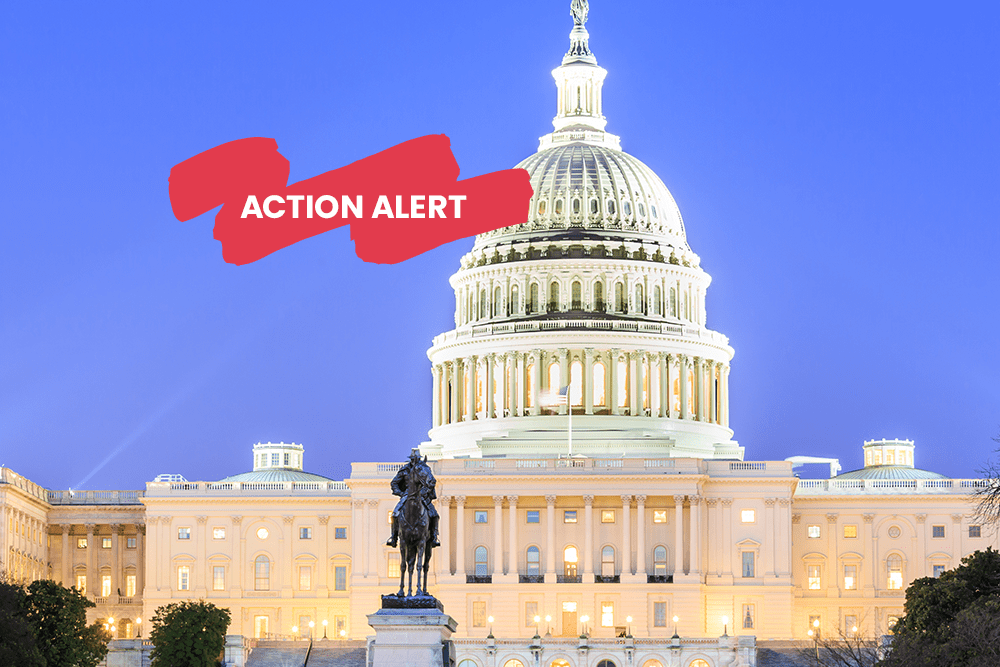Advocacy
Epinephrine in Schools and Public Places
AAFA supports school policies that require access to life-saving medications to treat students and staff who experience severe allergic reactions.
States should implement policies that promote access, including supplying schools with easy-to-use epinephrine for emergencies, appropriately training school personnel, and addressing liability concerns for people who use this medication in good faith.
Food allergies continue to be a growing problem, especially among young children. Approximately 20 million people in the United States have food allergies, 4 million of whom are children. These children spend much of their day in school, where they may be exposed to food allergens which can trigger a severe immune response, known as anaphylaxis. This severe allergic reaction can be life-threatening if not treated promptly.
AAFA urges state lawmakers to make the simple decision to save young lives. Schools should have access to undesignated, easy-to-use epinephrine and staff trained to administer the medication.
Modernizing Epinephrine Stocking Laws
Emergency treatment options for anaphylaxis are rapidly advancing, but state laws on medication stocking have not kept pace. In 2024, the Food and Drug Administration (FDA) approved the first epinephrine nasal spray and is currently reviewing an epinephrine sublingual film, with further innovations expected in the future. Most state laws specify only epinephrine auto-injectors, limiting schools’ ability to access different treatment types. By broadening language to include all forms of epinephrine, states can ensure that schools are prepared for current and future medical innovations.
AAFA has an advocacy toolkit to help you advocate for epinephrine stocking in your state. The “Modernizing Epinephrine Stocking Laws: An Advocacy Toolkit”  includes:
includes:
- A guide on how to find and contact your state legislators
- Tips for communicating with lawmakers and their staff
- Sample letters to help you share your concerns and policy recommendations
The sample letters are customized depending on your state’s current laws.
Does Your State Stock Epinephrine in Schools?

The School Access to Emergency Epinephrine Act
In 2013, President Obama signed the School Access to Emergency Epinephrine Act into law. This federal law encourages states to implement policies requiring schools to stock undesignated epinephrine auto-injectors for use in emergencies. States who develop such policies will be given additional preference for federal grants.
Thanks to this federal leadership, nearly every state — all except Hawaii — has passed a school epinephrine stocking law. This shows how strong federal encouragement can drive important state-level action.
However, there is still work to do: many existing laws need to be updated and strengthened to reflect medical advances and ensure schools are fully prepared to respond to anaphylaxis.
Expanding Access to Epinephrine Beyond School Campuses
As the number of states allowing schools to maintain an emergency supply of epinephrine increases, many states are looking beyond the classroom to other areas where food allergy triggers could be present. In any public space where food is present – such as sports and recreation venues, summer camps, amusement parks, movie theaters – there is a risk for an allergic individual to come in contact with their allergen. Therefore, focus is widening to consider epinephrine stocking laws beyond schools and into other public “entities.”
Epinephrine Stocking in Child Care Facilities
Child care facilities are sometimes included in entity stocking laws. You can find out more about child care specific policies related to food allergy and epinephrine stocking in our “Child Care Policies for Food Allergy: Elijah’s Law Report for U.S. States and Territories.”
View the map below to learn about the status of entity epinephrine stocking in your state:

To learn more about entity stocking laws, please see the featured Spotlight Article in AAFA’s 2015 State Honor Roll™ Report.













